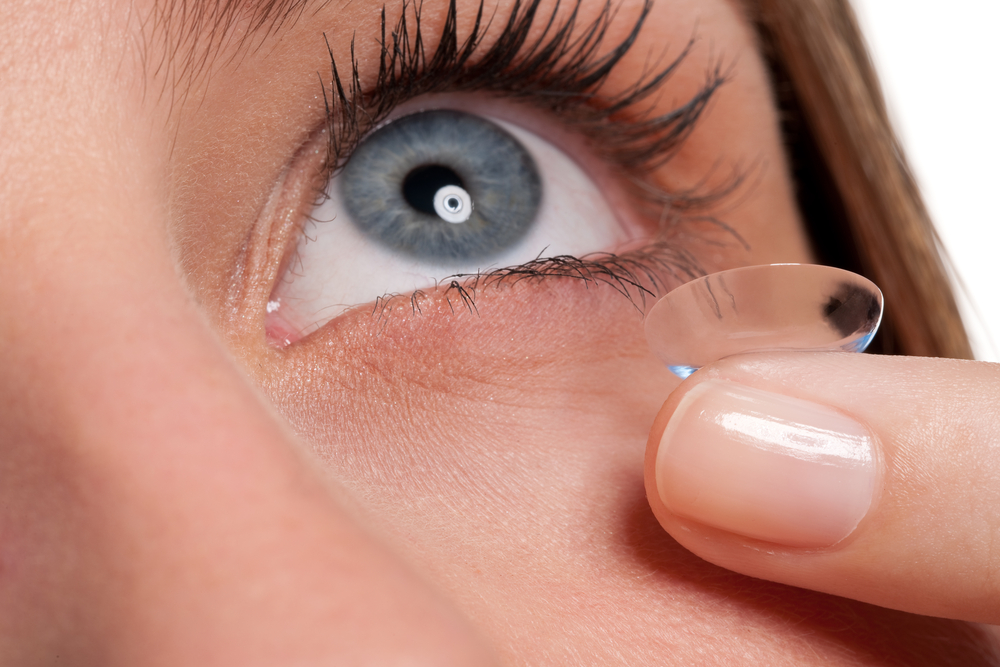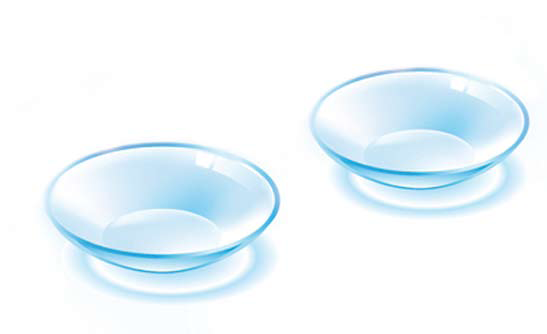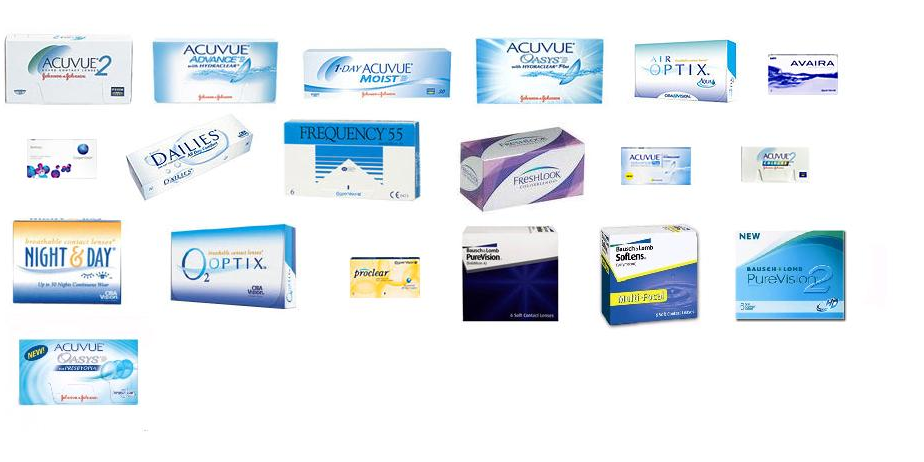Contact lenses are replacements for spectacles, usually meant for people who just can’t go without corrective lenses, but don’t want the hassle of wearing spectacles all the time. There’s a tradeoff though, using and maintaining contact lenses is a bit more complicated than a good ol’ pair of spectacles, which is why a lot of people don’t prefer it. One of the main reasons people do not opt for contact lenses is the cleaning process, because contact lenses have to be soaked in a solution and cleaned carefully every single day.

There is some confusion over the idea of disposable contact lenses, most people seem to think that contact lenses that are used only once and thrown are disposable lenses, and the ones that are used for a couple of days or weeks are non-disposable. In reality, both these lenses are called disposable contact lenses, just categorized differently according to time used. Usually, conventional contact lenses, which have to be replaced only after 6 months to a year are called non-disposable, and contact lenses with a replacement schedule anything under that are called disposable. To make it clearer:
- Daily Disposable Contact Lenses (DDCL): Have to be replaced every day
- Disposable Contact Lenses: Have to be replaced every 2 weeks, or earlier
- Frequent Replacement Lenses: Have to be replaced every monthly, or quarterly
- Conventional Lenses: Have to be replaced every six months or longer

Basically, the top three types of contact lenses mentioned above are called ‘disposable’, although a lot of people refer to Daily Disposable Contact Lenses as ‘true disposables’. Extended wear contact lenses are also available, which allow you to use them overnight, but have to be cleaned for at least one night, depending on the manufacturer schedule. Now, choosing the right type of contact lenses may become a little confusing, so there are a few things you need to keep in mind:
- Doctor’s recommendation: What does your doctor say about your contact lenses? If he or she recommends a particular brand or type with a certain replacement schedule, go for that one. Every lens has different properties, which change with the duration they can be used.
- Protein deposits: If your doctor tells you that your eyes are prone to protein deposits, he or she might recommend non extended wear contact lenses. Users, especially females, are usually not told to wear extended wear lenses because of deposits that are built up in the eyes, which can cause discomfort.
- Your usage: It wouldn’t make much sense to buy extended wear or long term focused contact lenses if you don’t use them, would it? A lot of people prefer using spectacles most of the time and only use contact lenses for special occasions or certain for certain periods, in which case short term use contact lenses would be far more convenient.

- Your schedule: If your schedule doesn’t allow for a frequent maintenance schedule, you might want to consider non-extended wear lenses. The less frequent replacement the contact lens are, the more maintenance they require, in general.
- The price: The pricing of contact lenses also differs with regards to the replacement schedule. Long term use lenses require more maintenance, but cost less initially. Daily replacement or frequent replacement lenses require comparatively less maintenance, but cost more initially.
In terms of eye health, it is generally considered that daily disposable contact lenses are the least troublesome. Eye problems usually develop from deposits and infections that build up, which are caused by extended use and improper cleaning respectively. Both these variables are eliminated with daily disposable contact lenses, simply because there’s no question of reusing lenses the next day, which also means that there’s no cleaning. Studies say that almost 80% of eye infections in contact lens users stem from an improper maintenance schedule. We can’t blame them either, it’s a rather delicate and time consuming process.

If you’re thinking about convenience, there’s also nothing better than daily disposable contact lenses. The ease of use is unmatched, and the best part is that both regular and non-regular contact lens wearers can adopt them. Although it would be more preferable for users who only occasionally use contact lenses, regular users also have nothing to lose, since they’re skipping the cleaning process and aren’t at risk of deposits and infections. Sure, there’s the added cost and burden of keeping a whole lot of lenses around, but considering the advantages, it’s not such a bad thing. There’s also the fact that you don’t need to spend any more on cleaning products, so the cost is offset a little bit.
In conclusion, we recommend disposable lenses simply because they’re easy to use and maintain, and put you at lesser risk of infection. The difference in cost isn’t too much either, but before you take a decision, make sure to consult your doctor to understand what your requirement is, because not everyone can use all contact lenses comfortably.
Photo Credits: fortney-eyecare.com, framesdirect.com
